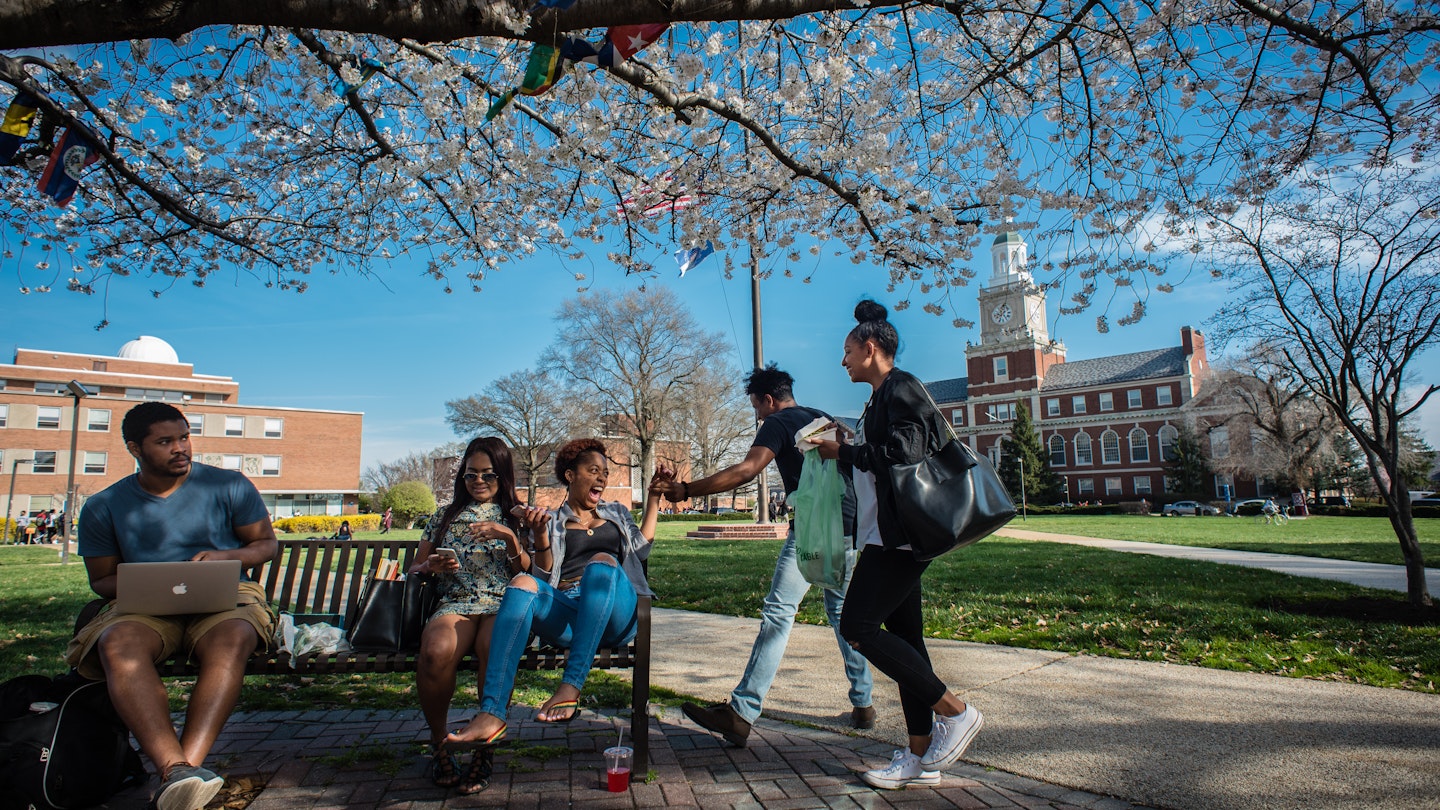Top Historically Black Colleges and Universities (HBCUs) to Explore
Historically Black Colleges and Universities (HBCUs) have always served as a haven for young Black people with a dream. From the halls of these institutions of higher learning came some of the biggest and brightest figures in American history. These places of higher learning remain an integral part of the Black experience, honoring past generations while inspiring future ones.
Here are several HBCUs in the United States to tour that offer valuable insights into Black culture and history:
Howard University – Washington, DC
Founded in 1867, Howard University remains the nation’s most prestigious traditionally Black institution of higher education. Its campus boasts numerous historical features including the iconic Cramton Auditorium and WHUT-TV, the first Black-owned TV station in the country.
A visit to Andrew Rankin Memorial Chapel is a must, where stunning stained glass windows portray great Black leaders. This serene space has welcomed many notable figures including Martin Luther King Jr. and Eleanor Roosevelt.
Distinguished alumni: Thurgood Marshall (first Black U.S. Supreme Court Justice), Toni Morrison (Nobel Laureate), Kamala Harris (first female, first Black, and Asian American vice president).
Hampton University – Hampton, Virginia
Founded in 1868, Hampton University is located near the Chesapeake Bay. One highlight is The Hampton University Museum, the oldest Black museum in the nation, featuring over 9,000 artifacts.
The Emancipation Oak is pivotal to campus history, serving as a classroom for the first Black teacher of the American Missionary Association and as the site of the first southern reading of the Emancipation Proclamation.
Distinguished alumni: Booker T. Washington (founder of Tuskegee University), comedienne Wanda Sykes, Rashida Jones (first African-American to lead a major cable news network – MSNBC).
Spelman College – Atlanta, Georgia
Located just minutes from downtown Atlanta, Spelman College is the oldest private Black liberal arts college for women in the U.S. Founded in 1881, it honors Laura Spelman Rockefeller and her family’s anti-slavery work.
Spelman’s tranquil campus, though compact at 39 acres, is adorned with trees and green spaces, creating a serene atmosphere for learning.
Distinguished alumni: Dovey Johnson Roundtree (Civil Rights activist, attorney, minister), Stacey Abrams (political figure), Alice Walker (Pulitzer Prize winner); Keisha Knight Pulliam (actress).
Morehouse College – Atlanta, Georgia
From humble beginnings, Morehouse College has produced many accomplished Black men. Established in 1867, its legacy includes a notable collection related to Dr. Martin Luther King Jr., a former student.
The campus honors various Civil Rights leaders, with collections showcasing King’s contributions from 1944 to 1968.
Distinguished alumni: Dr. Martin Luther King Jr., Spike Lee (director), Walter E. Massey (first Black mayor of Atlanta), Samuel L. Jackson (actor).
Grambling State University – Grambling, Louisiana
Founded in 1901, Grambling State University played a crucial role in higher education for Black Americans in northern Louisiana. The campus includes the famous Eddie G. Robinson Museum, honoring one of college football’s winningest coaches.
Robinson’s legacy includes leading the university’s football program to success and sending over 200 players to the NFL.
Distinguished alumni: Willis Reed (NBA Hall of Famer), Charles M. Blow (New York Times columnist), Cedric Glover (First Black mayor of Shreveport, Louisiana).
Florida A&M University – Tallahassee, Florida
What began with 15 students in 1887 has evolved into Florida A&M University, the third-largest HBCU based on enrollment. Its campus features the Eternal Flame, a symbol of student spirit.
Originally established as a school for African American students, FAMU offers a rich history and pride in its accomplishments.
Distinguished alumni: Althea Gibson (first Black woman to win a Wimbledon singles title), Dr. LaSalle D. Leffall, Jr. (first Black president of the American Cancer Society).
Fisk University – Nashville, Tennessee
Founded in 1866, Fisk University is among the oldest colleges in Nashville. With its key historical building, Jubilee Hall, it has long contributed to the cultural fabric of the city.
The Fisk Jubilee Singers significantly helped fund the university and are celebrated for their achievements in music.
Distinguished alumni: Diane Nash (Civil Rights activist), Nikki Giovanni (poet), John Lewis (Civil Rights activist).
Tuskegee University – Tuskegee, Alabama
Founded in 1881, Tuskegee University has a rich history tied to its founding figures, including Booker T. Washington. The university hosts numerous museums that celebrate its agricultural and aviation roots.
Notably, the Legacy Museum highlights critical public health events and the impact of the Tuskegee Study.
Distinguished alumni: Ralph Ellison (author), General Daniel “Chappie” James (first Black four-star General).
Xavier University of Louisiana – New Orleans
Established in 1915, Xavier University of Louisiana is the only Catholic HBCU in the U.S. The beautiful St. Katharine Drexel Chapel adds to the charm of the campus.
XULA is known for fostering community leaders and creatives alike.
Distinguished alumni: Ernest Nathan Morial (first Black mayor of New Orleans), Alexis Herman (first Black U.S. Secretary of Labor).
North Carolina A&T State University – Greensboro, NC
North Carolina A&T State University is the largest HBCU in the United States, with a large working farm and historical ties to the Civil Rights Movement through the Greensboro Four.
Its Dudley Memorial Building serves as a significant landmark and houses important collections related to African and Caribbean arts.
Distinguished alumni: Ronald McNair (NASA astronaut), Jesse Jackson (Civil Rights activist).





